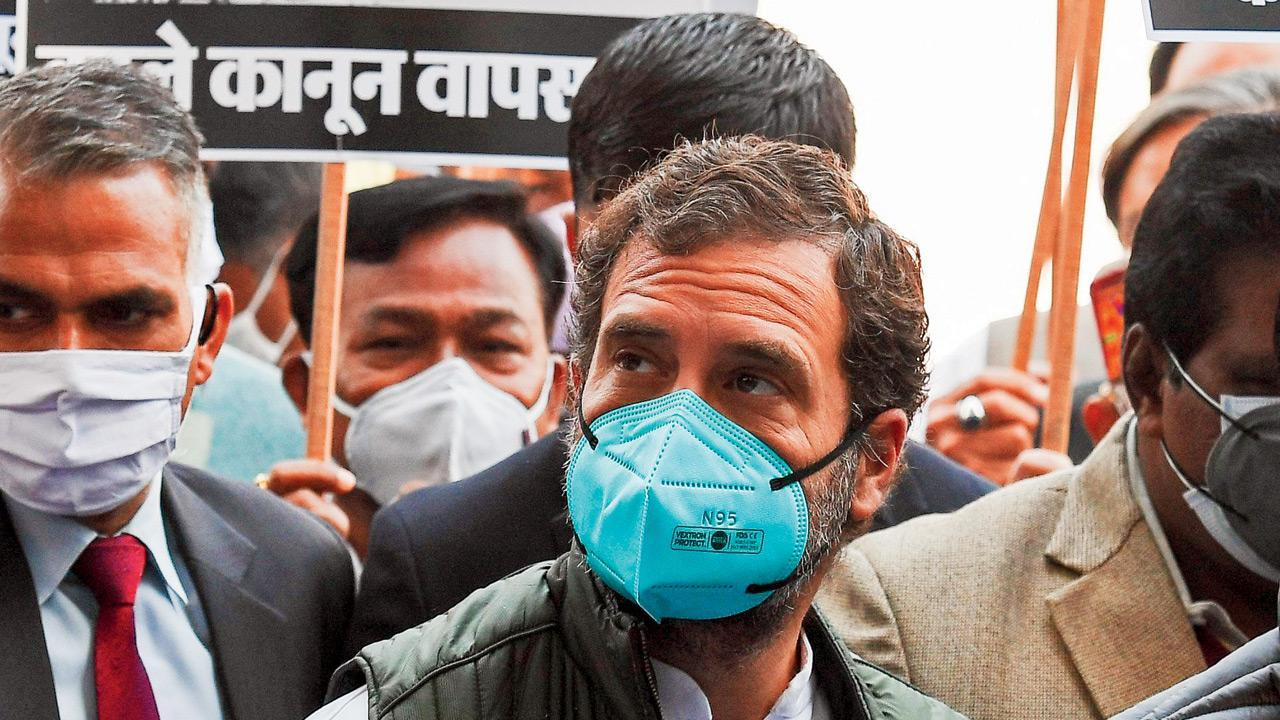A party with a multi-state footprint should helm the efforts to counter BJP. Congress ticks the box, but its electoral failures are a huge hurdle. To begin with, the Congress must resolve its problems in Punjab

Rahul Gandhi has, certainly, weaponised social media to create a narrative against Prime Minister Narendra Modi. But this alone is not enough to stake a claim to the leadership of an anti-BJP alliance
Away from the breakfast and dinner that leaders have been hosting to forge Opposition unity, there was also a meeting, about a month ago, between a political consultant and some leaders of the farmer unions protesting against the three new farm laws. The consultant suggested the farmer leaders should float a political party and contest the Punjab Assembly elections next year. Their party, the consultant said, could win as many as 35 out of 117 Assembly seats in the State.
ADVERTISEMENT
There are two views among the farmer unions over the issue of participation in elections. There are those who say conflicting political affiliations will divide the peasantry, and a poor electoral performance will unravel the unity forged by them. Their movement cannot be sacrificed for elusive political gains, as they disagree with the consultant’s rosy assessment about their electoral prospects.
The second view holds that it is important to acquire political power as Punjab’s ruling class is disinterested in improving the economic conditions of the peasantry. Yet even they say they should float a party after the three farm laws are withdrawn and their victory heralded. People will otherwise accuse them of abandoning the movement to fulfil their political ambitions.
It is hard to tell whether the consultant was keen on sussing out the position of farmer leaders on participating in the 2022 elections, or whether he thought yet another political entity in the electoral fray could be advantageous to the party of his choice.
The parley between the consultant and the farmer leaders shows Punjab is not a cakewalk for the Congress, as was made out to be until former Test cricketer Navjot Singh Sidhu locked Chief Minister Captain Amarinder Singh in a bruising battle. The Congress leadership is said to have propped up Sidhu in the hope of blunting anti-incumbency against Singh. But this decision has also intensified internecine squabbles, which, if unresolved, could spark internal sabotages.
The Congress must win Punjab with a clear majority, in addition to taking away Uttarakhand next year. Else doubts over Rahul Gandhi’s capability to spearhead the omnibus Opposition alliance against the BJP will deepen even further. Not only will a lacklustre performance in Punjab be blamed on Gandhi, it will also fail to inject mojo in the Congress to take on the BJP in bipolar electoral contests in Gujarat and Himachal Pradesh, due late next year.
Gandhi has, certainly, weaponised social media to create a narrative against Prime Minister Narendra Modi. But this alone is not enough to stake a claim to the leadership of an anti-BJP alliance. He needs victories for that. But he lost Assam to the BJP, Kerala to the Left, and his party’s governments were stolen in Madhya Pradesh and Karnataka.
Gandhi represents the dilemma of the putative Opposition alliance, which, to pack a punch, should have a party with a multi-state footprint leading it. Only such an entity can hope to notch a tally of Lok Sabha seats three or four times that of any ally in the alliance. Only this can make the alliance cohesive and give it a national profile.
It is uncertain whether the Congress, in the next Lok Sabha election, can even match its 2004 performance, when it won 145 seats to come to power. Its victory was powered by winning 29 seats in Andhra Pradesh, 13 in Maharashtra, 12 in Gujarat, nine each in Assam and Haryana, six in Delhi—and a sprinkling of seats countrywide.
These States are now a problem for the Congress. The bifurcation of Andhra Pradesh has decimated the party there. Haryana, in 2004, did not have the Congress facing the BJP as its principal contender. Ditto Delhi, where the Aam Aadmi Party is in pole position. Assam has become Hindutva’s playfield. There are fewer seats for the Congress to contest in Maharashtra because the Shiv Sena must also get a share there. Will Gujarat ditch its prime ministerial boy?
Electoral data suggest the Congress and the BJP are almost exclusively locked in a direct fight in around 150 seats. The share of the Congress in the national votes declined from 40 per cent in 1989 to 19 per cent in 2019. The BJP’s grew from 11 per cent to 37 per cent and the regional outfits’ dipped from 49 per cent to 44 per cent in the same period. The BJP cannot be vanquished unless the Congress pulls its weight in those 150 seats in the 2024 national election.
Until then, it would seem a losing proposition that the anti-BJP alliance should be headed by a leader whose party continues to misfire in one Assembly election after another. Was this why the guest list of Congress leader Kapil Sibal’s dinner trumped that of Gandhi’s breakfast in terms of star value? Sonia Gandhi’s meeting next week is expected to regain for the Congress the star quotient.
Yet take RTI activist Saket Gokhale, who cannot fetch a single vote for any party other than his own. His joining the Trinamool Congress tossed up that tantalising question again: Must an anti-BJP alliance that includes the Congress necessarily have as its spearhead a Gandhi who is unable to win? Rahul Gandhi must, for his own sake, win Punjab—and handsomely.
The writer is a senior journalist. Send your feedback to [email protected]
The views expressed in this column are the individual’s and don’t represent those of the paper.
 Subscribe today by clicking the link and stay updated with the latest news!" Click here!
Subscribe today by clicking the link and stay updated with the latest news!" Click here!






